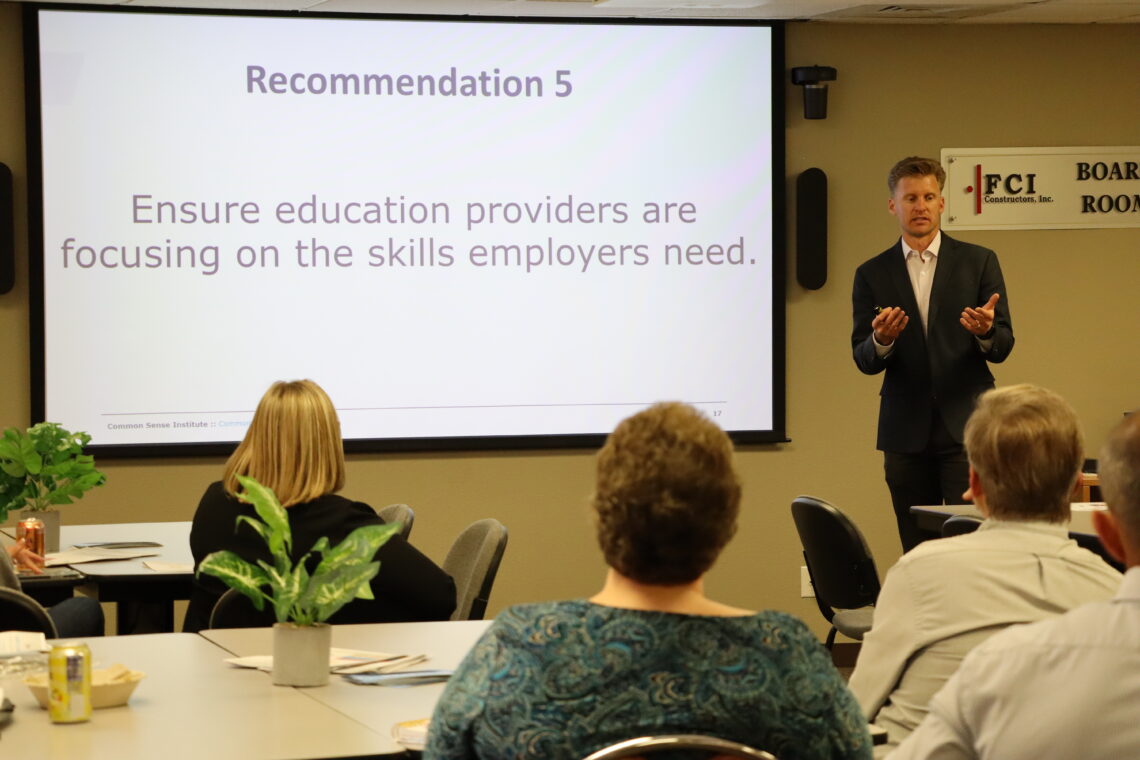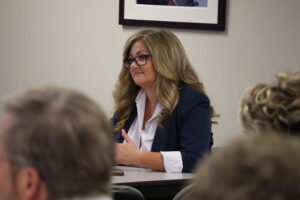
The Grand Junction Area Chamber of Commerce recently had the privilege of welcoming Chris Brown, Vice President of Policy and Research at the Common Sense Institute, to speak with employers, educational partners, stakeholders, and other workforce development implementers about the pressing issue of the skills gap in our community.
Representatives from Mesa County Valley School District 51, GJEP, the Business Incubator Center, Mesa County Workforce Center, CMU, and various other organizations and businesses listened to Chris Brown’s presentation, which shed light on the latest findings from the Common Sense Institute, which underscored the urgency of addressing the skills gap in Mesa County.
The report recognizes that by 2031, a staggering 73% of jobs in Colorado will require some level of postsecondary education. However, our current native-born workforce falls short of meeting this demand by over 79,000 individuals. This gap poses significant challenges to our community’s economic growth and the prosperity of our residents. Reports in early 2023 showed that it rose as high as 2.7 jobs per unemployed person, resulting in a loss to Colorado’s economy of more than $46 billion in potential GDP.
Following Chris Brown’s presentation, the discussion turned to concrete strategies for bridging the skills gap and ensuring that our workforce remains competitive in the years to come. Drawing upon the priorities laid out by the Grand Junction Chamber, participants engaged in a robust dialogue about the following key areas:
1. Measuring Outcomes and Directing Resources: We emphasized the importance of investing in programs that enhance career readiness and align educational initiatives with the needs of local employers.
2. Strengthening Work-Based Learning Opportunities: Participants recognized the value of providing clearer pathways for students and employers to engage in practical learning experiences, thereby better preparing our workforce for the demands of the job market.
3. Realigning Career Pathways: There was consensus around the need to ensure that educational programs prioritize the skills demanded by local employers, fostering a more seamless transition from school to career.
4. Creating Incentives for Employer Engagement: Finally, there was a shared commitment to fostering meaningful partnerships between educators and industry leaders, with a focus on incentivizing greater participation in career-connected learning opportunities.
As we reflect on the discussions held during this event, it is clear that collaboration and collective action are essential to addressing the skills gap in our community. We are inspired by the dedication and commitment demonstrated by all who participated, and are confident that together, we can build a stronger, more resilient workforce for Mesa County.
Click here to read the full report, Supply and Demand: Diagnosing Colorado’s Skills and Attainment Gap, by the Common Sense Institute.



